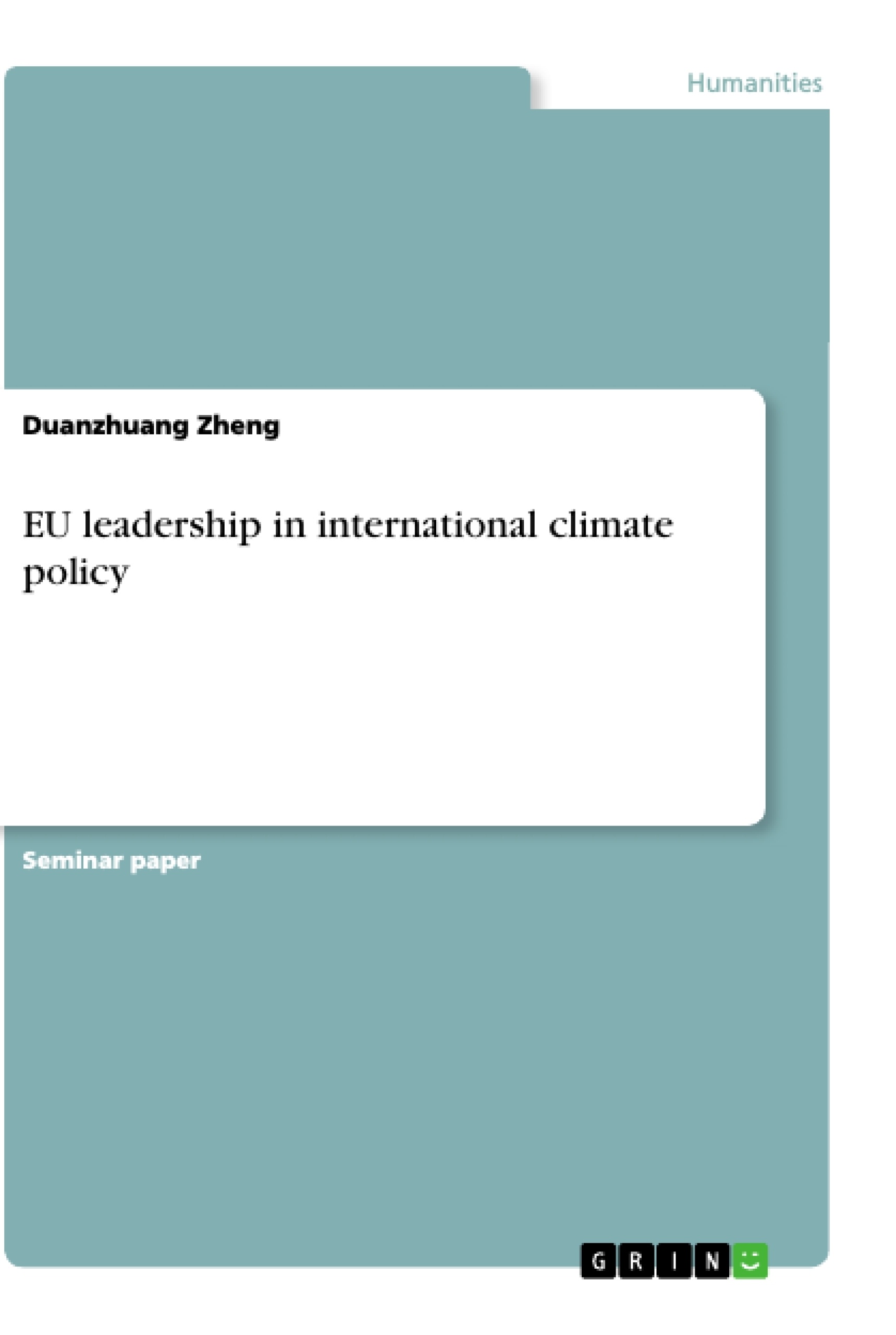Responding to a central question: To what extent did the EU lead the international climate policy? This paper focuses on the EU performance in global climate negotiations, the type/ quality of the EU leader role, and internal problems/external challenges facing the EU. At the beginning, this paper briefly reviews the climate change in recent 160 years and the global climate negotiations from performances of individual leaders and international institutions last century to interventions and interactions of state actors this century. Next, the EU climate actions are reviewed and its latest important initiatives are updated.
This paper then compares two representative periods: the Kyoto Conference, which signaled the success and achievements of the EU leadership and the Copenhagen Conference, which illustrated the failure and challenges of the EU leadership. Most importantly, this paper applies the neorealism and its varieties to discuss why and how the EU strived for a leadership in international climate policy, and the liberal intergovernmentalism to explore the EU internal problematic leading partially to the failure of the EU at the Copenhagen Summit. In the concluding section, the key points of this paper are emphasized. In addition, the future of the EU leadership and its way forward are discussed.
Inhaltsverzeichnis (Table of Contents)
- Introduction
- Combating climate change
- Climate change in brief
- Global climate negotiations
- EU climate action
- EU leadership: Success and achievements
- The Kyoto Conference and beyond
- Neorealism and its varieties
- EU leadership: Failure and challenges
- The Copenhagen Conference
- Liberal intergovernmentalism
- Conclusion
Zielsetzung und Themenschwerpunkte (Objectives and Key Themes)
This paper explores the role of the EU in international climate policy, particularly focusing on its leadership performance in global climate negotiations. The paper investigates the type and quality of EU leadership, as well as the internal problems and external challenges the EU faces in this context.
- EU performance in global climate negotiations
- Type and quality of EU leadership in international climate policy
- Internal problems and external challenges faced by the EU in climate policy
- EU climate action and its latest initiatives
- Comparative analysis of the Kyoto and Copenhagen Conferences
Zusammenfassung der Kapitel (Chapter Summaries)
The paper begins by providing a brief overview of climate change and its consequences, followed by a review of the history of global climate negotiations, including the contributions of individual leaders and international institutions. The paper then examines the EU's climate actions and its latest initiatives.
Chapter 3 focuses on the Kyoto Conference, highlighting the EU's successful leadership in securing binding emission reduction targets for industrialized countries. Chapter 4 analyzes the Copenhagen Conference, where the EU faced significant challenges and failures in achieving its goals. The paper utilizes theoretical perspectives like neorealism and liberal intergovernmentalism to explain the dynamics of EU leadership in international climate policy.
Schlüsselwörter (Keywords)
The paper focuses on the EU's role in international climate policy, encompassing topics like global climate negotiations, leadership analysis, EU climate action, the Kyoto and Copenhagen Conferences, and theoretical frameworks such as neorealism and liberal intergovernmentalism.
Frequently Asked Questions
To what extent did the EU lead international climate policy?
The EU has historically strived for a leadership role in global climate negotiations, though its success has varied. While the Kyoto Conference is seen as a signal of successful EU leadership, the Copenhagen Conference illustrated significant challenges and failures in maintaining that role.
What are the key differences between the Kyoto and Copenhagen Conferences for the EU?
The Kyoto Conference represented a peak in EU leadership where binding emission targets were secured. In contrast, the Copenhagen Conference highlighted internal problems and external challenges that led to a perceived failure of the EU's leadership goals.
Which theoretical frameworks are used to analyze EU climate policy in this paper?
The paper applies neorealism to discuss why the EU strived for leadership and liberal intergovernmentalism to explore internal issues that contributed to failures at summits like Copenhagen.
What are the main challenges facing EU climate leadership?
The EU faces both internal problematic dynamics, such as coordination between member states, and external challenges involving interactions with other major state actors and international institutions.
How has climate change progressed over the last 160 years according to the text?
The paper briefly reviews climate change over the last 160 years, tracing the evolution from individual leadership and international institutional performance in the last century to state actor interactions in the current century.
- Citar trabajo
- Duanzhuang Zheng (Autor), 2012, EU leadership in international climate policy, Múnich, GRIN Verlag, https://www.grin.com/document/923041



